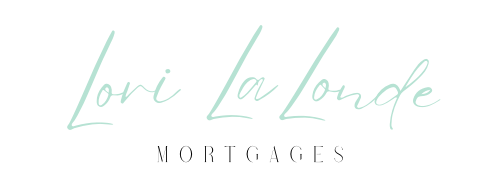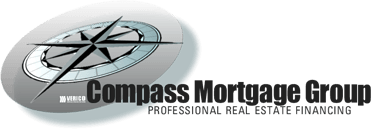Articles to keep you learning

By Lori Lalonde
•
April 1, 2025
Buying a property might actually be easier than you think. So, if you have NO desire AT ALL to qualify for a mortgage, here are some great steps you can take to ensure you don’t accidentally buy a property. Fair warning, this article might get a little cheeky. Quit your job. First things first, ditch that job. One of the best ways to make sure you won’t qualify for a mortgage is to be unemployed. Yep, most mortgage lenders aren’t in the practice of lending money to unemployed people! If you already have a preapproval in place and don’t want to go through with financing, no problems. Unexpectedly quit your job mid-application. Because, even if you’re making a lateral move or taking a better job, any change in employment status can negatively impact your approval. Spend All Your Savings. To get a mortgage, you’ll have to bring some money to the table. In Canada, the minimum downpayment required is 5% of the purchase price. Now, if the goal is not to get a mortgage, spending all your money and having absolutely nothing in your account is a surefire way to ensure you won’t qualify for a mortgage. So, if you’ve been looking for a reason to go out and buy a new vehicle, consider this your permission. Collect as Much Debt as Possible. After quitting your job and spending all your savings, you should definitely go out and incur as much debt as possible! The higher the payments, the better. You see, one of the main qualifiers on a mortgage is called your debt-service ratio. This takes into count the amount of money you make compared to the amount of money you owe. So the more debt you have, the less money you’ll have leftover to finance a home. Stop Making Your Debt Payments So let’s say you can’t shake your job, you still have a good amount of money in the bank, and you’ve run out of ways to spend money you don’t have. Don’t panic; you can still absolutely wreck your chances of qualifying for a mortgage! Just don’t pay any of your bills on time or stop making your payments altogether. Why would any lender want to lend you money when you have a track record of not paying back any of the money you’ve already borrowed? Provide Ugly Supporting Documentation. Now, if all else fails, the last chance you have to scuttle your chances of getting a mortgage is to provide the lender with really ugly documents. To support your mortgage application, lenders must complete their due diligence. Here are three ways to make sure the lender won’t be able to verify anything. Firstly, and probably the most straightforward, make sure your name doesn’t appear anywhere on any of your statements. This way, the lender can’t be sure the documents are actually yours or not. Secondly, when providing bank statements to prove downpayment funds, make sure there are multiple cash deposits over $1000 without explaining where the money came from. This will look like money laundering and will throw up all kinds of red flags. And lastly, consider blacking out all your “personal information.” Just use a black Sharpie and make your paperwork look like classified FBI documents. Follow-Through So there you have it, to avoid an accidental home purchase, you should quit your job, spend all your money, borrow as much money as possible, stop making your payments, and make sure the lender can’t prove anything! This will ensure no one will lend you money to buy a property! Now, on the off chance that you’d actually like to qualify for a mortgage, you’ve come to the right place. The suggestion would be to actually keep your job, save for a downpayment, limit the amount of debt you carry, make your payments on time, and provide clear documentation to support your mortgage application! If you'd like to make sure you're on the right track, connect anytime. It would be a pleasure to walk through the mortgage process with you.

By Lori Lalonde
•
March 18, 2025
When arranging mortgage financing, your mortgage lender will register your mortgage in one of two ways. Either with a standard charge mortgage or a collateral charge mortgage. Let’s look at the differences between the two. Standard charge mortgage This is your good old-fashioned mortgage. A standard charge mortgage is the mortgage you most likely think about when you consider mortgage financing. Here, the amount you borrow from the lender is the amount that is registered against the title to protect the lender if you default on your mortgage. When your mortgage term is up, you can either renew your existing mortgage or, if it makes more financial sense, you can switch your mortgage to another lender. As long as you aren’t changing any of the fine print, the new lender will usually cover the cost of the switch. A standard charge mortgage has set terms and is non-advanceable. This means that if you need to borrow more money, you'll need to reapply and requalify for a new mortgage. So there will be costs associated with breaking your existing mortgage and costs to register a new one. Collateral charge mortgage A collateral charge mortgage is a mortgage that can have multiple parts, usually with a re-advanceable component. It can include many different financing options like a personal loan or line of credit. Your mortgage is registered against the title in a way that should you need to borrow more money down the line; you can do so fairly easily. A home equity line of credit is a good example of a collateral charge mortgage. Unlike a standard charge mortgage, here, your lender will register a higher amount than what you actually borrow. This could be for the property's full value, or some lenders will go up to 125% of your property's value. In the future, if the value of your property appreciates, with a collateral charge mortgage, you don't have to rewrite your existing mortgage to borrow more money (assuming you qualify). This will save you from any costs associated with breaking your existing mortgage and registering a new one. However, if you’re looking to switch your mortgage to another lender at the end of your term, you might be forced to discharge your mortgage and incur legal fees. Also, by registering your mortgage with a collateral charge, you potentially limit your ability to secure a second mortgage. So what’s a better option for you? Well, there are benefits and drawbacks to both. Finding the best option for you really depends on your financial situation and what you believe gives you the most flexibility. This is probably a question better handled in a conversation rather than in an article. With that said, undoubtedly, the best option is to work with an independent mortgage professional. It’s our job to understand the intricacies of mortgage financing, listen to and assess your needs, and recommend the best mortgage to meet your needs. As we work with many lenders, we can provide you with options. Don’t get stuck dealing with a single institution that may only offer you a collateral charge mortgage when what you need is a standard charge mortgage. So if you’d like to have a conversation about mortgage financing, please get in touch. It would be a pleasure to work with you and answer any questions you might have.

By Lori Lalonde
•
March 4, 2025
If you’re looking to buy a property or have a mortgage up for renewal, and you’re thinking about connecting with your bank directly, save yourself a lot of money and regret by reading this article first. Here are four things that your bank won’t tell you, accompanied by four reasons that explain why working with an independent mortgage professional is in your best interest. Banks have Limited Access to Mortgage Products. Now, while this one may seem pretty straightforward, if you’re dealing with a single institution, they can only offer mortgages from their product catalogue. This means that you’ll be restricted to their qualifications which are usually very narrow. Working with a single institution significantly limits your options, especially if your financial situation isn’t straightforward. In contrast, dealing with an independent mortgage professional, you will have access to products from over 200 lenders, including banks, monoline lenders, credit unions, finance companies, alternative lenders, institutional B lenders, Mortgage Investment Corporations, and private funds. Working with an independent mortgage professional will give you considerably more options to secure a better mortgage. Banks Employ Salespeople, not Mortgage Experts. Banks don’t employ mortgage experts; they employ salespeople. Banks pay and incentivize salespeople to sell their products. There is a fundamental misalignment of values here. If the bank incentivizes a banker to make a profit for the bank, how can they at the same time advocate for you and your best interest? They can’t. Banks don’t have your best interest in mind. In fact, the more money they make off of you, the better it is for their bottom line. However, when you work with an independent mortgage professional, you get the experience of someone who understands the intricacies of mortgage financing and will advocate on your behalf to get you the best mortgage. It’s actually in our best interest to assist you in finding the mortgage with the best terms for you. Once your mortgage completes, we get paid a standardized finder’s fee by the lender for arranging the financing. So although we get paid by the lender, that lender has had to compete with other lenders to earn your business. When you work with an independent mortgage professional, everyone wins. You get the best mortgage available, we get paid a standardized finder’s fee, and the lender gets a new borrower. Banks Rarely Offer You Their Best Terms Upfront. Banks are in the business of making money, and they’re usually pretty good at it. As such, banks will rarely offer you their best terms at the outset of your negotiation. This is especially true if you’re looking to refinance your existing mortgage. With over half of Canadians simply accepting the renewal offer they get sent in the mail without question, banks don’t have to put their best rate forward. Instead, they rely on you to be ignorant of the process and will take advantage of your trust in them. When you work with an independent mortgage professional, we don’t play games with rates and terms. Our goal is always to seek out the lender who has the best mortgage for you from the start of the process, and if there are any negotiations to be had, we handle them for you. There is no reason for us to do otherwise. In fact, the better we do our job, the more likely it is that you’ll be happy with our services and refer your friends and family. Banks Promote Restrictive Mortgage Products. As if it’s not bad enough that banks don’t offer their best terms upfront, they actually promote mortgage products that are restrictive in nature. The fine print in your mortgage contract matters; understanding it is challenging. Banks do what they can to make it hard for you to leave. Now, if you’ve ever heard stories of outrageous penalties being charged, this is what’s called an Interest Rate Differential penalty (IRD). Each lender has its own way of calculating the IRD. Chartered banks are known for their restrictive mortgages and high IRD penalties. When you work with an independent mortgage professional, we take the time to listen to your goals and assess your mortgage needs based on your life circumstances. The best mortgage is the one that lowers your overall cost of borrowing. So not only will we walk through the cost of the mortgage financing, but we’ll also clearly outline the costs incurred should you need to break your mortgage before the end of your term. This might be the deciding factor in choosing the right lender and mortgage for you. Working with an Independent Mortgage Professional is in Your Best Interest. Banks have limitations to the mortgage products they offer. Working with an independent mortgage professional gives you mortgage options! Bankers work for the bank; they are incentivized to make money for the bank. An independent mortgage professional advocates on your behalf to get you the best mortgage available. Banks rarely offer their best terms upfront; they leave negotiations up to you. An independent mortgage professional outlines the best terms from multiple lenders at the start of the process. Banks promote restrictive mortgage products that make it difficult to leave them. An independent mortgage broker will outline all the costs associated with different mortgage products and recommend the mortgage best suited for your needs. So if you’d like to talk about the best mortgage product for you, you’ve come to the right place. Please connect anytime. It would be a pleasure to work with you.

By Lori Lalonde
•
February 28, 2025
Refinancing your mortgage can be a smart financial move, but how do you know if it’s the right time? Whether you’re looking to lower your monthly payments, access home equity, or consolidate debt, refinancing can offer valuable benefits. Here are five key signs that it might be the right time to refinance your mortgage in Canada. 1. Interest Rates Have Dropped One of the most common reasons Canadians refinance is to secure a lower interest rate. Even a small decrease in your mortgage rate can lead to significant savings over time. If rates have dropped since you took out your mortgage, refinancing could help you reduce your monthly payments and save thousands in interest. ✅ Tip: Check with your mortgage broker to compare your current rate with today’s market rates. 2. Your Financial Situation Has Improved If your credit score has increased or your income has stabilized since you first got your mortgage, you might qualify for better loan terms. Lenders offer lower rates and better conditions to borrowers with strong financial profiles. ✅ Tip: If you’ve paid off debts, improved your credit score, or increased your savings, refinancing could work in your favour. 3. You Want to Consolidate High-Interest Debt Carrying high-interest debt from credit cards, personal loans, or lines of credit? Refinancing can help consolidate those debts into your mortgage at a much lower interest rate. This can make monthly payments more manageable and reduce the overall cost of borrowing. ✅ Tip: Make sure the savings from refinancing outweigh any prepayment penalties or fees. 4. You Need to Free Up Cash for a Major Expense Many Canadians refinance to access their home’s equity for renovations, education costs, or major life expenses. With home values rising in many areas, a refinance could help you tap into that value while still keeping manageable payments. ✅ Tip: Consider a home equity line of credit (HELOC) if you need flexible access to funds. 5. Your Mortgage Term is Ending, and You Want Better Terms If your mortgage is up for renewal, it’s the perfect time to explore refinancing options. Instead of simply accepting your lender’s renewal offer, compare rates and terms to see if you can get a better deal elsewhere. ✅ Tip: A mortgage broker can help you shop around and negotiate better terms on your behalf. Is Refinancing Right for You? Refinancing isn’t always the best move—there can be penalties for breaking your current mortgage, and not all savings are worth the switch. However, if you relate to any of the five signs above, it’s worth discussing your options with a mortgage professional. Thinking about refinancing? Let’s chat and find the best option for you!

By Lori Lalonde
•
February 24, 2025
Navigating Mortgage Rates in an Uncertain Market With Canada’s economy facing trade tensions, inflation concerns, and a potential slowdown, mortgage rates are in flux. Borrowers must weigh the risks and rewards of fixed vs. variable rates to make the best decision for their financial future. What’s Driving Mortgage Rate Changes? Several key factors are shaping the mortgage landscape: Trade Uncertainty – New tariffs between the U.S. and Canada could push inflation higher, impacting bond yields and fixed mortgage rates. Inflation Pressures – If inflation stays above the Bank of Canada’s 2% target, rate cuts may be delayed, keeping borrowing costs higher. Recession Concerns – If economic growth slows, the BoC could cut rates, making variable-rate mortgages more attractive. Fixed vs. Variable: Which One is Right for You? 🔒 Fixed-Rate Mortgages: ✅ Predictable payments for peace of mind ✅ Protection from future rate hikes ❌ Typically higher initial rates ❌ Costly penalties if you break your term early 📊 Variable-Rate Mortgages: ✅ Lower starting rates with potential for savings ✅ Easier to break or refinance if needed ❌ Payments can fluctuate with rate changes ❌ Higher risk if inflation pushes rates upward What’s the Best Move Right Now? ✔ Go Fixed if you want stability and protection from rising rates. ✔ Go Variable if you believe rates will drop and you can handle some risk. ✔ Consider a Hybrid Mortgage to get the best of both worlds. Stay Flexible & Informed Mortgage rates are unpredictable, and the best choice today may change in a few months. Working with a mortgage professional can help you navigate these shifts and secure the best deal for your financial future. Need expert guidance? Reach out today to discuss your options!

By Lori Lalonde
•
February 18, 2025
If you have a variable rate mortgage and recent economic news has you thinking about locking into a fixed rate, here’s what you can expect will happen. You can expect to pay a higher interest rate over the remainder of your term, while you could end up paying a significantly higher mortgage penalty should you need to break your mortgage before the end of your term. Now, each lender has a slightly different way that they handle the process of switching from a variable rate to a fixed rate. Still, it’s safe to say that regardless of which lender you’re with, you’ll end up paying more money in interest and potentially way more money down the line in mortgage penalties should you have to break your mortgage. Interest rates on fixed rate mortgages Fixed rate mortgages come with a higher interest rate than variable rate mortgages. If you’re a variable rate mortgage holder, this is one of the reasons you went variable in the first place; to secure the lower rate. The perception is that fixed rates are somewhat “safe” while variable rates are “uncertain.” And while it’s true that because the variable rate is tied to prime, it can increase (or decrease) within your term, there are controls in place to ensure that rates don’t take a roller coaster ride. The Bank of Canada has eight prescheduled rate announcements per year, where they rarely move more than 0.25% per announcement, making it impossible for your variable rate to double overnight. Penalties on fixed rate mortgages Each lender has a different way of calculating the cost to break a mortgage. However, generally speaking, breaking a variable rate mortgage will cost roughly three months of interest or approximately 0.5% of the total mortgage balance. While breaking a fixed rate mortgage could cost upwards of 4% of the total mortgage balance should you need to break it early and you’re required to pay an interest rate differential penalty. For example, on a $500k mortgage balance, the cost to break your variable rate would be roughly $2500, while the cost to break your fixed rate mortgage could be as high as $20,000, eight times more depending on the lender and how they calculate their interest rate differential penalty. The flexibility of a variable rate mortgage vs the cost of breaking a fixed rate mortgage is likely another reason you went with a variable rate in the first place. Breaking your mortgage contract Did you know that almost 60% of Canadians will break their current mortgage at an average of 38 months? And while you might have the best intention of staying with your existing mortgage for the remainder of your term, sometimes life happens, you need to make a change. Here’s is a list of potential reasons you might need to break your mortgage before the end of the term. Certainly worth reviewing before committing to a fixed rate mortgage. Sale of your property because of a job relocation. Purchase of a new home. Access equity from your home. Refinance your home to pay off consumer debt. Refinance your home to fund a new business. Because you got married, you combine assets and want to live together in a new property. Because you got divorced, you need to split up your assets and access the equity in your property Because you or someone close to you got sick Because you lost your job or because you got a new one You want to remove someone from the title. You want to pay off your mortgage before the maturity date. Essentially, locking your variable rate mortgage into a fixed rate is choosing to voluntarily pay more interest to the lender while giving up some of the flexibility should you need to break your mortgage. If you’d like to discuss this in greater detail, please connect anytime. It would be a pleasure to walk you through all your mortgage options and provide you with professional mortgage advice.

By Lori Lalonde
•
February 4, 2025
Credit. The ability of a customer to obtain goods or services before payment, based on the trust that you will make payments in the future. When you borrow money to buy a property, you’ll be required to prove that you have a good history of managing your credit. That is, making good on all your payments. But what exactly is a “good history of managing credit”? What are lenders looking at when they assess your credit report? If you’re new to managing your credit, an easy way to remember the minimum credit requirements for mortgage financing is the 2/2/2 rule. Two active trade lines established over a minimum period of two years, with a minimum limit of two thousand dollars, is what lenders are looking for. A trade line could be a credit card, an instalment loan, a car loan, or a line of credit; basically, anytime a lender extends credit to you. Your repayment history is kept on your credit report and generates a credit score. For a tradeline to be considered active, you must have used it for at least one month and then once every three months. To build a good credit history, both of your tradelines need to be used for at least two years. This history gives the lender confidence that you’ve established good credit habits over a decent length of time. Two thousand dollars is the bare minimum limit required on your trade lines. So if you have a credit card with a $1000 limit and a line of credit with a $2500 limit, you would be okay as your limit would be $3500. If you’re managing your credit well, chances are you will be offered a limit increase. It’s a good idea to take it. Mortgage Lenders want to know that you can handle borrowing money. Now, don’t confuse the limit with the balance. You don’t have to carry a balance on your trade lines for them to be considered active. To build credit, it’s best to use your tradelines but pay them off in full every month in the case of credit cards and make all your loan payments on time. A great way to use your credit is to pay your bills via direct withdrawal from your credit card, then set up a regular transfer from your bank account to pay off the credit card in full every month. Automation becomes your best friend. Just make sure you keep on top of your banking to ensure everything works as it should. Now, you might be thinking, what about my credit score, isn’t that important when talking about building a credit profile to secure a mortgage? Well, your credit score is important, but if you have two tradelines, reporting for two years, with a minimum limit of two thousand dollars, without missing any payments, your credit score will take care of itself, and you should have no worries. With that said, it never hurts to take a look at your credit every once and a while to ensure no errors are reported on your credit bureau. So, if you’re thinking about buying a property in the next couple of years and want to make sure that you have good enough credit to qualify, let’s talk. Connect anytime; it would be a pleasure to work with you and help you to understand better how your credit impacts mortgage qualification.

By Lori Lalonde
•
January 21, 2025
The best place to start the mortgage process is with a pre-approval. But once you’ve been pre-approved for a mortgage and you’ve been shopping with location in mind, what happens when you can’t find a suitable property? There's no doubt about it; finding the perfect property within your price range is a difficult task, especially for first-time homebuyers. So, before buyer’s fatigue sets in, maybe you should consider adding the cost of renovations into your purchase. Buying a property and including the cost of renovations into the mortgage is available through a program called purchase plus improvements. When purchasing a home, you can add the cost of home upgrades into your mortgage, making it a great option if you can’t find something move-in ready and aren’t afraid to do a little work! But while this sounds simple enough, in all honestly, it’s quite the process. There are some pretty strict rules to follow, but nothing that you can’t handle with the guidance of an independent mortgage professional. Here’s a quick overview of the process. Firstly, you must provide quotes to the lender ahead of time for the work you would like to complete. It’s good to note that the renovations will have to increase the value of the property accordingly. From there, the lender doesn’t give you the money to do the upgrades; you have to come up with that yourself. However, once the work has been completed and verified by an appraiser, the lender will reimburse you and include the money in your mortgage. This program isn’t for everyone. Buying a home is a stressful endeavour in and of itself. The added stress of having to undertake renovations right away might not be a good idea. But then again, if you have the financial wherewithal to handle the cost of renovations and like the idea of making it yours from the start, then this might be just the option you’ve been looking for! Please connect directly; it would be a pleasure to walk through the exact process and outline what securing a purchase plus improvements would look like for you!

By Lori Lalonde
•
January 7, 2025
Buying your first home is a big deal. And while you may feel like you’re ready to take that step, here are 4 things that will prove it out. 1. You have at least 5% available for a downpayment. To buy your first home, you need to come up with at least 5% for a downpayment. From there, you’ll be expected to have roughly 1.5% of the purchase price set aside for closing costs. If you’ve saved your downpayment by accumulating your own funds, it means you have a positive cash flow which is a good thing. However, if you don’t quite have enough saved up on your own, but you have a family member who is willing to give you a gift to assist you, that works too. 2. You have established credit. Building a credit score takes some time. Before any lender considers you for mortgage financing, they want to see that you have an established history of repaying the money you’ve already borrowed. Typically two trade lines, for a period of two years, with a minimum amount of $2000, should work! Now, if you’ve had some credit issues in the past, it doesn’t mean you aren’t ready to be a homeowner. However, it might mean a little more planning is required! A co-signor can be considered here as well. 3. You have the income to make your mortgage payments. And then some. If you’re going to borrow money to buy a house, the lender wants to make sure that you have the ability to pay it back. Plus interest. The ideal situation is to have a permanent full-time position where you’re past probation. Now, if you rely on any inconsistent forms of income, having a two-year history is required. A good rule of thumb is to keep the costs of homeownership to under a third of your gross income, leaving you with two-thirds of your income to pay for your life. 4. You’ve discussed mortgage financing with a professional. Buying your first home can be quite a process. With all the information available online, it’s hard to know where to start. While you might feel ready, there are lots of steps to take; way more than can be outlined in a simple article like this one. So if you think you’re ready to buy your first home, the best place to start is with a preapproval! Let's discuss your financial situation, talk through your downpayment options, look at your credit score, assess your income and liabilities, and ultimately see what kind of mortgage you can qualify for to become a homeowner! Please connect anytime; it would be a pleasure to work with you!
Send a Message
Send A Message
Thank you for contacting me.
I will get back to you as soon as possible.
Oops, there was an error sending your message.
Please try again later.
Contact Information
Office Address:
1405 St Paul St #108
Kelowna, BC
V1Y 2E4
© 2025
All Rights Reserved | Lori Lalonde Inc. | Privacy and Content Notice



